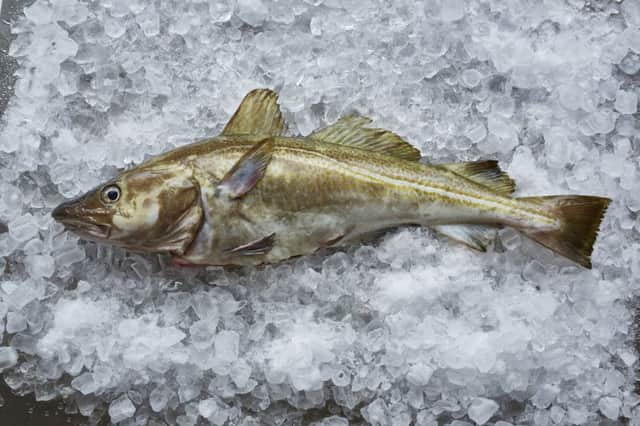Stephen Jardine: Net gains from return of North Sea cod


It is easy to be blasé about another food and drink scare. And no wonder. Butter was bad but is now good – eggs too. Is it any wonder shoppers develop food scare fatigue?
With every dire warning comes a risk that consumers simply tune out and stop listening to the experts when problems are real and genuine.
Advertisement
Hide AdAdvertisement
Hide AdIf that happens, the best hope for affecting change will have been lost.
This week fish and chip lovers received the welcome news they can now enjoy North Sea cod with a clear conscience. For the first time in nearly 20 years, the fish has been labelled as sustainable by the Marine Stewardship Council following a campaign of collective action.
Cod has always been a favourite fish in this country. Between the 1970s and 2016, overfishing meant stocks in the North Sea plunged by 84 per cent.
With complete collapse a possibility, urgent action was taken to put the fish on the endangered list and to encourage consumers to eat alternatives.
Cod is still on menus although most of it now comes from Iceland and Norway but that is about to change. With North Sea stocks up four-fold in a decade, fishing areas close to our shores are now deemed sustainable once again and it should be back in the shops as soon as next week.
None of this would have been possible without joined-up action. Fishermen played their part by decommissioning boats and introducing larger holes in nets to allow young cod to escape. The Government enforced fishing bans in breeding areas and consumers turned to coley, hake or whiting to give cod stocks a rest. Together the action plan produced the desired effect and cod is now sustainable and back on the approved list. That is good news for Scottish fishermen with UK cod sales expected to rise rapidly.
“We now have an opportunity to be world trailblazers in accepting and adapting the change needed to harvest to a level that will benefit all in the future,” said Peterhead fishing skipper Jimmy Buchan.
The news also offers reassurance to customers. A recent survey for the Marine Stewardship Council showed 28 per cent of people thought cod was not sustainable so should not be eaten. An equal proportion of those questioned thought the exact opposite.
Advertisement
Hide AdAdvertisement
Hide AdWho can blame them for being confused? The Marine Stewardship Council (MSC) says North Sea haddock is sustainable and can be enjoyed with a clear conscience. The Marine Conservation Society (MCS) disagrees and has removed haddock from it’s recommended green list of fish to eat. Caught in the middle is the poor consumer.
There can be good reasons for a divergence of opinion but right now it is important to think very carefully about anything that might cause unnecessary confusion.
Over the next few years there is going to be a huge amount for consumers to get their heads around when it comes to what is good and bad for them and the environment. They need responsible information, not scares. The cod experience shows what can happen when a threat is tackled in the right way. It is something we can be proud of but must learn from.